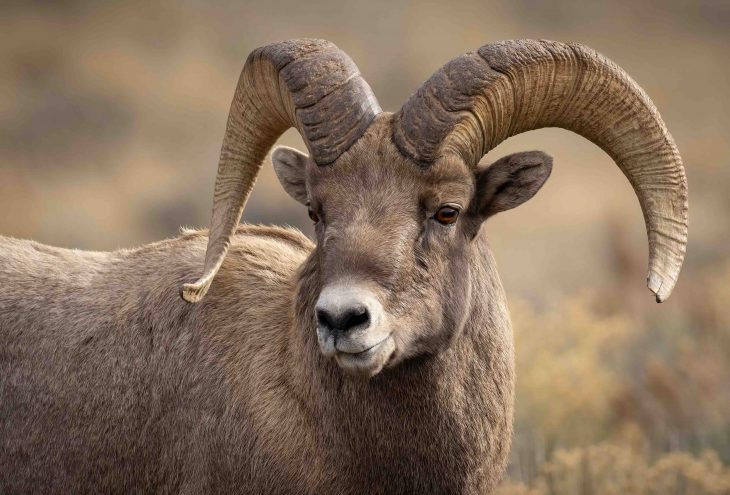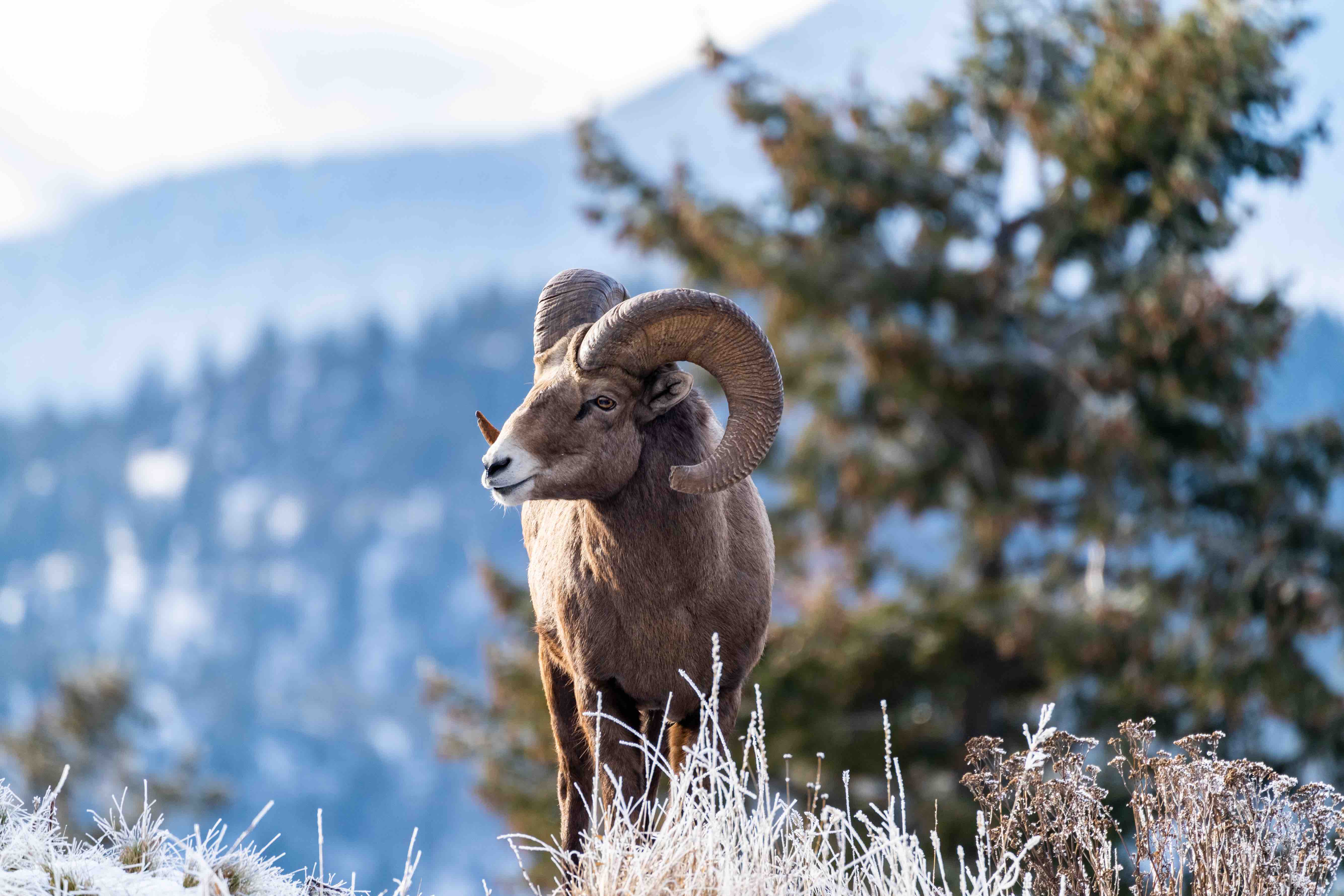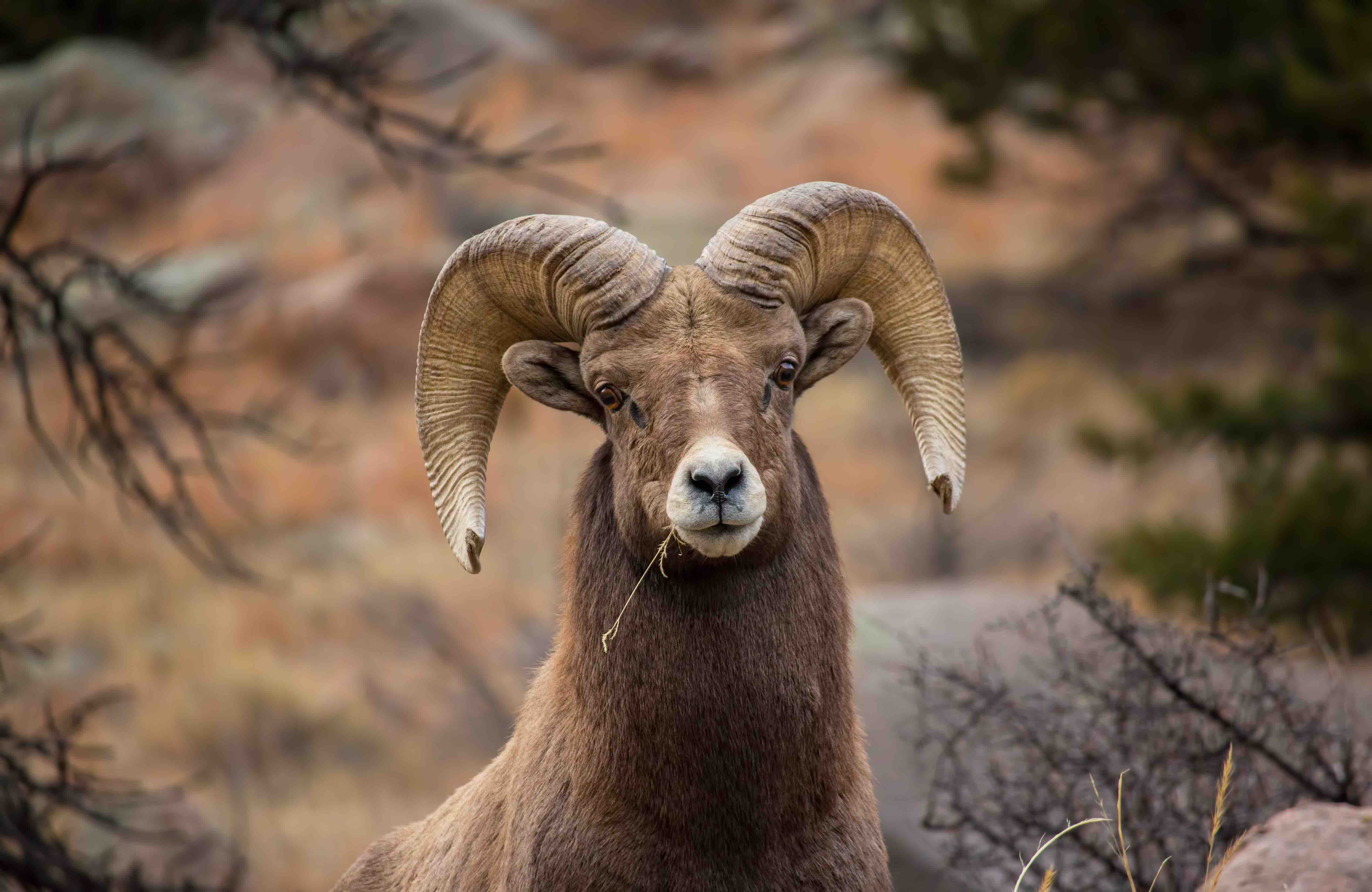
Bighorn sheep, known for their impressive horns and agile climbing abilities, are captivating creatures that roam the rugged landscapes of North America. These majestic animals have intrigued scientists and nature enthusiasts for years. In this article, we will explore 11 fascinating facts about bighorn sheep, delving into their habitat, behavior, adaptations, and more. Prepare to be amazed by the wonders of these magnificent creatures.
Habitat and Range
Bighorn sheep are primarily found in the mountainous regions of North America, from Canada down to Mexico. They inhabit diverse habitats such as deserts, canyons, and alpine meadows, showcasing their adaptability to various environments.
Iconic Horns
One of the most distinctive features of bighorn sheep is their impressive horns. Both males (rams) and females (ewes) possess horns, although those of males are larger and more curved. These horns can weigh up to 30 pounds and are composed of keratin, the same material found in human hair and nails.
Social Structure
Bighorn sheep exhibit a hierarchical social structure. Rams engage in dramatic head-to-head clashes, known as “battles,” to establish dominance and access to mating opportunities. Ewes form tight-knit groups with their young, while rams often live in separate bachelor groups.
Adaptations for Climbing

Bighorn sheep are exceptional climbers, thanks to their specialized adaptations. Their hooves have a unique outer edge that provides a firm grip on rocky terrain. Additionally, their muscular bodies and flexible spines allow them to navigate steep slopes and cliffs with ease.
Impressive Agility and Balance
When bighorn sheep traverse treacherous terrains, their exceptional agility and balance shine. They can leap up to 20 feet in a single bound and navigate narrow ledges with confidence. These remarkable skills help them access food sources and escape predators.
Seasonal Migration
In response to changing seasons and the availability of resources, bighorn sheep often undertake seasonal migrations. They move between lower elevations during the winter, where food is more abundant, and higher elevations during the summer to escape heat and insects.
Herbivorous Diet
Bighorn sheep are herbivores, primarily feeding on grasses, shrubs, and other vegetation. Their specialized digestive system allows them to extract maximum nutrients from their food, enabling them to survive in harsh and nutrient-deficient environments.
Mating Rituals
During the mating season or rut, male bighorn sheep engage in elaborate displays to attract females. They butt heads with rival males, creating loud clashes that echo through the mountains. The victorious ram earns the right to mate with receptive ewes.
Motherly Bonds
Ewes exhibit strong maternal instincts, forming close bonds with their lambs. After giving birth, a ewe will isolate herself from the group for a short period to bond with her lamb and allow it to gain strength before rejoining the herd.
Population Conservation

Bighorn sheep populations have faced numerous challenges over the years, including habitat loss, disease, and overhunting. However, through conservation efforts and reintroduction programs, their numbers have shown signs of recovery, highlighting the importance of preserving these iconic creatures.
Symbol of Strength and Resilience
Bighorn sheep hold symbolic significance in many cultures. They are often seen as representations of strength, resilience, and determination. Their ability to thrive in harsh mountain environments serves as a reminder of the power of adaptability and tenacity.
Conclusion
Bighorn sheep, with their awe-inspiring horns, remarkable climbing abilities, and unique social dynamics, continue to capture our fascination. These majestic creatures exemplify the beauty and adaptability of the natural world, reminding us of the wonders that exist within it.
Frequently Asked Questions (FAQs)
How long do bighorn sheep horns grow?
Bighorn sheep horns grow throughout their lives, with the growth rate varying between individuals. On average, the horns of adult rams can reach lengths of 30 inches or more.
What is the lifespan of a bighorn sheep?
In the wild, bighorn sheep typically live for 10 to 15 years. However, some individuals have been known to live up to 20 years or more.
Do bighorn sheep migrate long distances?
Bighorn sheep undertake seasonal migrations, moving between different elevations to access food and escape harsh weather conditions. The distances covered during these migrations can vary but are often several miles.
How fast can bighorn sheep run?
Bighorn sheep can reach speeds of up to 30 miles per hour when running. Their agility and speed help them evade predators and navigate challenging terrain.
Are bighorn sheep endangered?
While some populations of bighorn sheep are still considered at risk, conservation efforts have led to population recoveries in certain areas. Continued conservation initiatives are crucial to ensure the long-term survival of these magnificent creatures.
Was this page helpful?
Our commitment to delivering trustworthy and engaging content is at the heart of what we do. Each fact on our site is contributed by real users like you, bringing a wealth of diverse insights and information. To ensure the highest standards of accuracy and reliability, our dedicated editors meticulously review each submission. This process guarantees that the facts we share are not only fascinating but also credible. Trust in our commitment to quality and authenticity as you explore and learn with us.


